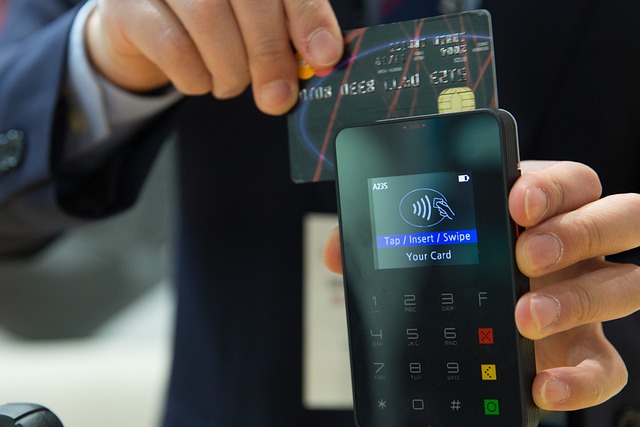By Apu Pavithran, Founder & CEO of Hexnode
In retail, speed and convenience reign supreme. Whether it’s scanning barcodes during a Black Friday rush or tapping through a POS screen while a queue snakes down the aisle, every second counts.
And more often than not, Android is the engine behind it all. From mobile checkout devices to inventory scanners and store apps, Android powers nearly 68% of frontline retail tech. Its open-source nature, affordability, and endless customization options make it a no-brainer for businesses trying to keep up with customer expectations.
With so much focus on enhancing customer experience, security often takes a backseat. And cybercriminals are counting on that. An outdated app, a missed patch, or a poorly secured device can turn a normal sales day into a full-blown data breach.
A Smarter Way to Manage Android Devices from the Get-go
In retail, things move fast. When a device lands in a store employee’s hands, it needs to be ready. Not halfway configured. Not waiting for someone to tinker with settings or download apps.
That’s where Android Zero-Touch Enrollment makes a big difference. Think of it as plug-and-play for the retail floor. The moment a device connects to Wi-Fi, it automatically enrolls into the company’s endpoint management platform. From there, the platform takes over, pushing the right apps, settings, and security policies based on the assigned enrollment profile.
It’s not just a time-saver—it’s a scale enabler. When you’re rolling out dozens or even hundreds of devices across multiple locations, the old manual setup process just doesn’t cut it anymore. Automation isn’t a luxury at that point; it’s essential.
One aspect that’s often overlooked is that device management works best when software and hardware are speaking the same language. That’s why many endpoint management vendors build close partnerships with OEMs (Original Equipment Manufacturers)—the folks making the devices themselves. These collaborations help unlock deeper-level controls and smoother deployment experiences. It’s not about branding or badging—it’s about making sure everything runs as expected, right out of the box, especially when you’re managing devices at scale.
Patch Now or Pay Later
Security updates might not grab headlines, but ignoring them can quickly become costly. In March 2025 alone, Google addressed 43 vulnerabilities affecting Android devices, two of them already being used in active attacks.
The gap between discovering a vulnerability and someone exploiting it is getting shorter. Retail businesses, especially those running on lean IT teams, can’t afford to leave devices unpatched for weeks. A single missed update can be all it takes to bring operations to a grinding halt, like a point-of-sale terminal freezing up during peak hours.
Retailers, especially those with small IT teams, don’t have the luxury of patching on a slow schedule. But doing it manually across locations? That’s not realistic either. As such, patch management becomes an IT investment that retailers can’t afford to avoid. Fortunately, most modern endpoint management solutions come with dedicated patching capabilities. It gives IT teams more control over the dozens of patches being released every month, letting them test, schedule, and even automate updates without the chaos. This is especially useful when managing devices across multiple locations, where manual updates would be nearly impossible.
Keep Apps in Check Before They Go Rogue
Not every risk in retail comes through the front door. Sometimes, it sneaks in through an app that looked harmless, until it wasn’t. One moment, it’s a simple PDF reader. Next thing you know, it’s quietly accessing your files or tracking your location.
Android’s openness gives retailers the freedom to choose the tools that work best for their teams. But with that freedom comes a few challenges. In fact, Google blocked over 2.3 million apps in 2024 alone for violating Play Store policies, many of them risky enough to compromise data or device performance.
For retailers, that means it’s not enough to just “allow” apps. They need to manage them. That starts with deciding which apps can be installed in the first place. Internal app stores—essentially a curated list of approved tools—are becoming more common. They ensure employees only use what’s necessary and what’s been vetted.
Then there’s usage monitoring. Sometimes, risk doesn’t come from a new app, but from an outdated version of a trusted one. Regular visibility into app versions, usage, and update status can help IT teams catch issues before they turn into support tickets—or security incidents.
However, some retail devices have a very specific job. Maybe it’s a self-checkout kiosk or even a POS device. Maybe it’s a tablet used exclusively for inventory tracking. In these cases, letting the device access unrelated apps or features isn’t just unnecessary—it can be risky.
That’s where lockdown modes, or kiosk configurations, come in. They allow a device to run just one app—or a handful of apps—while hiding everything else. No access to settings, no ability to download new apps, no distractions. Just the task at hand. And when those kiosks can still be managed centrally, updated remotely, and reconfigured on the fly? Even better.
The bottom line is that good endpoint management isn’t about adding more complexity. It’s about creating a foundation that lets everything else run smoother. Hexnode’s survey found that nearly 42% of businesses aren’t ready for a cyberattack, and in retail, that’s a risk you can’t take. In a business where every second counts, that kind of stability isn’t a luxury—it’s a necessity.
About author
 Apu Pavithran is the founder and CEO of Hexnode, the award-winning Unified Endpoint Management (UEM) platform. Hexnode helps businesses manage mobile, desktop and workplace IoT devices from a single place. Recognized in the IT management community as a consultant, speaker and thought leader, Apu has been a strong advocate for IT governance and Information security management. He also finds time from his busy schedule to contribute articles and insights on topics he strongly feels about.
Apu Pavithran is the founder and CEO of Hexnode, the award-winning Unified Endpoint Management (UEM) platform. Hexnode helps businesses manage mobile, desktop and workplace IoT devices from a single place. Recognized in the IT management community as a consultant, speaker and thought leader, Apu has been a strong advocate for IT governance and Information security management. He also finds time from his busy schedule to contribute articles and insights on topics he strongly feels about.
Related Articles

How To Navigate Running a Business With Family As Co-Workers
Keeping business transactions above board is especially important for business owners who have integrated their family into the company. Transparent communication and documentation will help to protect yourself and your business from accusations of nepotism.

Hexnode CEO on how the “Holiday Illusion” is Masking the Risks of Retail’s Seasonal Workforce
The danger of seasonal hires is magnified not just by who is accessing the network, but when they are doing it. Sophisticated threat actors possess a deep understanding of the retail operational calendar.

The New Frugality: How Inflation and Tariffs Are Reshaping Consumer Spending
One of the most telling shifts is how shoppers approach decision-making. Where convenience once dominated, consciousness now plays a larger role. People are researching more before making a purchase, comparing prices across multiple platforms, and questioning whether they really need the product in the first place.

Embracing new concepts vs the return to brick-and-mortar
Balancing the return to physical retail and the development of new technologies to enhance customer experience and drive operational efficiency for long-term success.


 for the latest news and job opportunities in retail tech
for the latest news and job opportunities in retail tech 